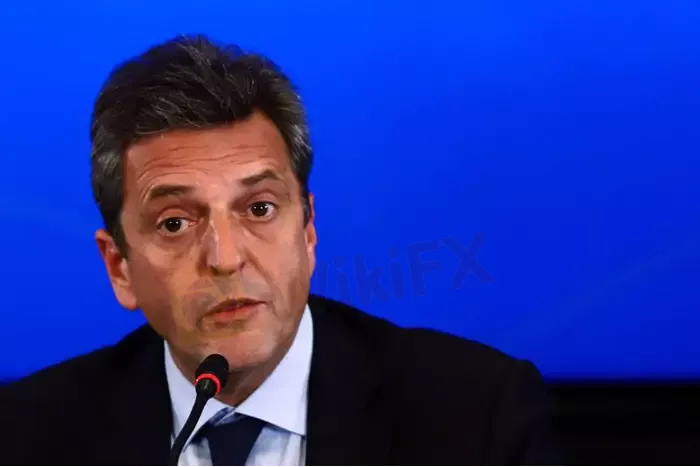简体中文
繁體中文
English
Pусский
日本語
ภาษาไทย
Tiếng Việt
Bahasa Indonesia
Español
हिन्दी
Filippiiniläinen
Français
Deutsch
Português
Türkçe
한국어
العربية
July inflation could shock Argentina’s government – economy ministry source
Abstract: Inflation in July could be so high that it will “shock” Argentina’s government, an economy ministry source told Reuters on Thursday, expecting high inflation in August as well.

Former Congressman Sergio Massa took office Wednesday as economy minister in the midst of an economic crisis, announcing measures intended to ensure fiscal austerity and to shore up dwindling foreign currency reserves.
The source added that with cuts to subsidies on gas, electricity and water, the government would save 500 billion pesos ($3.8 billion) a year, although the full impact would not be felt until the 2023 accounts.
The government of President Alberto Fernandez also expected a sharp reduction in spending on energy imports in the second half of the year, the source said, adding that the government hoped workers salaries would at least “match” high inflation in 2022, which analysts estimate will exceed 70%.
In regards to the countrys renegotiation of $2 billion in debt with Club of Paris creditor countries, the source said the government would try to reach a debt agreement “as quickly as possible.”

Disclaimer:
The views in this article only represent the author's personal views, and do not constitute investment advice on this platform. This platform does not guarantee the accuracy, completeness and timeliness of the information in the article, and will not be liable for any loss caused by the use of or reliance on the information in the article.
Read more

Webull Launches SMSF Investment Platform with Zero Fees
Webull introduces commission-free SMSF trading, offering over 3,500 US and Australian ETFs, with no brokerage fees and enhanced portfolio tools.

April Fool's Day Scam Prevention Experience Collection
Share your “Forex Fraud Prevention Experience”, win WikiFX points and gold rewards!

How Will the Market React at a Crucial Turning Point?
Safe-haven assets like gold and U.S. Treasuries are surging, while equities face mounting pressure. As this pivotal moment approaches, how will the market react?

Gold Prices Climb Again – Have Investors Seized the Opportunity?
Gold prices have hit record highs for three consecutive days, with a remarkable 19% gain in the first quarter, marking the strongest quarterly performance since 1986. As market risk aversion rises, demand for gold has surged significantly.
WikiFX Broker
Latest News
How Crypto Trading Transforms FX and CFD Brokerage Industry
FCA Warns Against 10 Unlicensed or Clone Firms
CySEC Warns Against 14 Unlicensed Investment Websites
Top Currency Pairs to Watch for Profit This Week - March 31, 2025
Will natural disasters have an impact on the forex market?
Philippines Deports 29 Indonesians Linked to Online Scam Syndicate in Manila
Exposing the Top 5 Scam Brokers of March 2025: A Closer Look by WikiFX
Gold Prices Climb Again – Have Investors Seized the Opportunity?
Webull Launches SMSF Investment Platform with Zero Fees
Australian Regulator Warns of Money Laundering and Fraud Risks in Crypto ATMs
Currency Calculator







